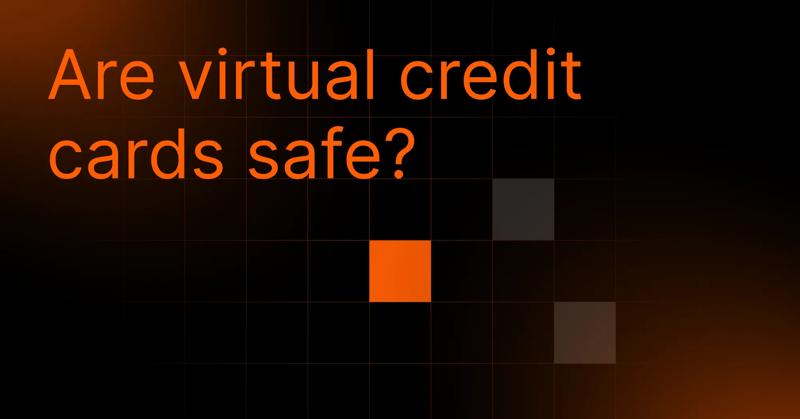What can someone do with your Social Security number? Possible scenarios explained
If you're a US resident, your Social Security number (SSN) is a key to your identity, finances, and future. But in the wrong hands, it can be used to open bank accounts, rack up debt, or commit fraud in your name. While an SSN alone is often not enough to carry out these activities without additional personal information, such as your full name, date of birth, address, and sometimes access to your mail, email, or phone, it can still pose a significant risk. In this article, we'll explain exactly what someone can do with your Social Security number and how to protect yourself from it.

Why is a Social Security number important?
The Social Security number was originally designed to track earnings and calculate retirement benefits. Over time, it evolved into a de facto national ID, used by the government as well as banks, healthcare providers, schools, and employers. You need it for everything from filing taxes and applying for a mortgage to getting a new job or driver's license. That makes it both essential and vulnerable.
Because it links to nearly every part of your identity, your SSN is a prime target for identity theft. Once it’s compromised, containing the damage may be incredibly difficult. It also may not be obvious right away — scammers are often careful, playing the long game.
How can you know if someone is using your Social Security number? One of the first steps is to review your credit reports. Look for unfamiliar accounts or credit inquiries you didn't authorize — both are red flags that your identity may be at risk.
Although the Social Security Administration (SSA) has promoted alternatives to reduce reliance on SSNs, the reality is that most systems still depend on them. From hospitals to hiring websites, the number remains central to record keeping, and that means the risk remains, too.
What can someone do with your Social Security number?
With access to your Social Security number, an identity thief can pose as you, opening bank accounts, applying for credit, collecting government benefits, and conducting other financial activities in your name.
Here's a breakdown of what can happen when your Social Security card is stolen or criminals obtain your SSN in another way.
Commit identity theft
Identity theft is the most severe and far-reaching consequence. With your SSN, a criminal can assume your identity completely. They can open new credit cards or bank accounts, take out loans, or lease an apartment — all under your name. You may not find out until you're denied a mortgage, receive debt collection notices, or see a sudden drop in your credit score.
Identity theft damages more than your finances — it affects your peace of mind, takes precious time to rectify, and can degrade your mental health. Recovery of your identity can take months or even years.
If you'd like to learn more, you can also take a look at our guide on how to check if someone opened a bank account in your name.
Empty your bank account
With your SSN and other personal information (like your name and date of birth), criminals can potentially gain access to your bank accounts. They may use phishing or social engineering to bypass security questions, reset login credentials, and withdraw money. They can even reroute direct deposits and set up fraudulent transfers.
Engage in tax fraud
Tax fraud is one of the most common and damaging ways stolen Social Security numbers are used. Someone with your SSN can file a fraudulent tax return in your name and claim a refund. You may only find out when the IRS rejects your legitimate tax return — or worse, accuses you of underreporting income or tax evasion.
Commit crimes
When someone uses your SSN while committing a crime, the consequences can follow you, not them. A fraudster may give your information to law enforcement during a traffic stop, arrest, or investigation, effectively transferring the record of their actions to you. This misuse will most likely lead to a criminal record in your name — something that will show up in background checks and complicate everything from job applications to housing approvals.
Commit government benefits tax fraud
An identity thief can use your SSN to receive benefits and payments. These may include unemployment, disability, food assistance, and Social Security benefits. Such fraud not only costs taxpayers money — it can also delay or reduce your own access to programs you may need one day.
Conduct employment fraud
Employers use your Social Security number to report income and verify your identity. Someone with your SSN can get a job under your name, leading to tax issues, wage discrepancies, and problems with the IRS.
If multiple people are using your SSN, your earnings history and benefits eligibility could be compromised.
Set up utilities
It may seem minor, but setting up utility accounts for electricity, water, or internet service in someone else's name is a common scam. You may not realize anything's wrong until unpaid bills show up in your credit report or collectors call you for charges you never made.
Perform medical identity theft
Medical identity theft involves using your Social Security number to access healthcare. Scammers may receive medical care, surgery, or prescriptions using your benefits. That not only drains your health insurance allowances but may also corrupt your medical records, which can lead to misdiagnosis or denied coverage. If you suspect something's off (like unexpected medical bills or unfamiliar insurance claims), request a copy of your medical records and report fraud to the Federal Trade Commission (FTC).
How someone can steal your Social Security number
Your Social Security number is valuable, and criminals know it. It can fall into the wrong hands in several ways, often without you realizing it until the damage is done.
Data breaches
Banks, employers, healthcare providers, and government agencies often store large amounts of personal data, including your SSN, which makes it vulnerable when those organizations are hit by data breaches. Whether caused by human error or a targeted cyberattack, a breach can expose your SSN and other personal details to hackers.
Criminals search for this kind of data, often buying it in bulk to commit fraud, open fake accounts, or sell it to others. To find out if your SSN has been exposed, consider using a dark web monitoring service that flags potential data breaches in real time. If you'd like to learn more, take a look at our guide on what to do if your SSN is on the dark web.
Phishing attacks
Phishing is one of the most common tactics used to steal SSNs. In this type of scam, attackers pose as trusted organizations — like a bank, the IRS, or your employer — and send emails or texts that look legitimate. These messages often include links or attachments designed to trick you into clicking.
Once you do, you may be taken to a fake website that looks real but is built to steal your information. Or worse, you may unknowingly install malware on your device. These spoofed sites and emails often ask for personal details, including your Social Security number, under the guise of account verification, fraud alerts, or urgent requests.
Physical theft
Not all identity theft happens online. Some criminals still rely on low-tech methods to get your Social Security number, like stealing physical documents. They may rummage through the trash, looking for discarded bank statements, medical bills, or anything else with your SSN on it. Others target wallets, purses, or laptop bags, hoping to find Social Security cards, driver's licenses, or financial documents.
Even something as routine as leaving paperwork in your car or tossing an official letter in the recycling bin without shredding it can give someone the opening they need. To lower your risk, store important documents securely and shred anything with sensitive information before throwing it away.
Man-in-the-middle attacks
Man-in-the-middle attacks occur when someone intercepts your data as it travels between your device and a website or service. These attacks are especially common on unsecured public Wi-Fi networks (like those in cafes, airports, or hotels), where your connection isn't encrypted.
In an MITM attack, a criminal positions themselves between you and the network, quietly capturing any information you send. If you enter your Social Security number on a website or send it through a form while connected to an unsecured network, they can see and steal it in real time.
What to do if someone has your Social Security number
If your SSN has been stolen or compromised, swift action is key. Here's what to do if someone has your Social Security number:
- Report the theft to the Federal Trade Commission (FTC) at IdentityTheft.gov.
- Place a fraud alert or initiate a credit freeze with the major credit bureaus.
- File a police report.
- Notify the Internal Revenue Service (IRS) to prevent someone from filing a false tax return using your information.
- Contact your financial institutions and creditors.
- Monitor your SSN usage and sign up for an identity protection service.
If you're asking yourself what to do if your identity is stolen, this is where you begin. The sooner you take action, the better your chances of limiting the impact and restoring your financial and personal security. In severe cases where ongoing identity theft continues to affect you despite all preventive measures, you might wonder if you can change your Social Security number. While such applications are rarely approved, the Social Security Administration does allow it in specific circumstances such as persistent identity theft or threats to personal safety.
What can you do to protect your Social Security number?
Protecting your Social Security number doesn't require extreme measures, but it does require consistent, thoughtful habits. These steps will help reduce the risk of misuse and identity theft:
- Keep your Social Security card at home. You don't need to carry it with you daily. Store it in a secure place.
- Limit sharing your Social Security number and other sensitive information. If you're asked for it, don't hesitate to ask why it's needed, how it will be stored, and who will have access. You can often provide the last four digits rather than the full Social Security number.
- Shred documents with your SSN before discarding them. This includes tax documents and insurance forms that could be pieced together to impersonate you.
- Use strong passwords for your online accounts, especially those tied to your financial, tax, or healthcare information. Avoid reusing passwords across sites.
- Turn on multi-factor authentication (MFA) where available. MFA adds an extra step to the login process, making it harder for anyone to access your accounts even if they have your password.
- Regularly check your credit reports through AnnualCreditReport.com. Look for unfamiliar accounts, hard inquiries you don't recognize, or errors in your personal information.
- Create a personal "my Social Security account" at ssa.gov. This step gives you direct access to your earnings and benefits information and helps you spot any unusual activity, such as someone fraudulently using your Social Security number for employment.
- Review your Social Security statement to make sure your earnings history is accurate. If someone is using your SSN to work under a false identity, it may show up here.
- Learn how to check if someone has opened an account in your name. Regular credit monitoring or identity protection services can alert you to fraudulent activity before it causes real damage.
- Be cautious of phishing emails or phone calls. Never give out personal info unless you're sure who you're talking to.
- Consider an identity theft protection service. Services like NordProtect track your SSN immediately, check your credit reports, monitor the dark web for exposure, send you data breach alerts, and provide expert identity theft recovery support if you ever need it.
Additionally, you can take a look at our guide and learn more tips on how to protect your Social Security number.
Scams are in the air!
Save 71% on identity theft protection with fraud insurance
30-day money-back guarantee
View promotion details.
FAQ
What can someone do with the last four digits of your Social Security number?
What can someone do with your Social Security number and driver's license?
What can someone do with your Social Security number and date of birth?
Can someone use your Social Security number with a different name?
What should you do if you give your Social Security number to a scammer?
What is identity theft insurance?
Ugnė is a content manager focused on cybersecurity topics such as identity theft, online privacy, and fraud prevention. She works to make digital safety easy to understand and act on.



